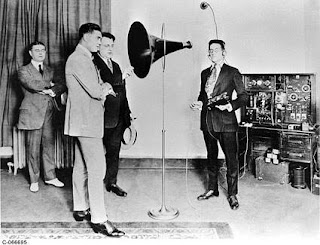
Redd was a part of a concert band that became more and more successful until they were invited to join an Oklahoma City radio station in 1924. From there, his career took off and his music was in greater demand. In 1931 he joined a larger radio station in Des Moines, found more success, and then decided to head to Hollywood, California. However, he arrived at the end of the Western Jazz era and the beginning of the Great Depression, thus finding it hard to find work and was not as successful as he had been. He struggled to find work in the city. When World War II started, he joined the Coast Guard for three years. After the war, Redd was doing shows for AFRS.
After the war he found success again in Hollywood as he began working with other big name artists of the time from both radio and movies. During this time he also found success in the movie industry and starred in several films, including The Strawberry Roan.









































